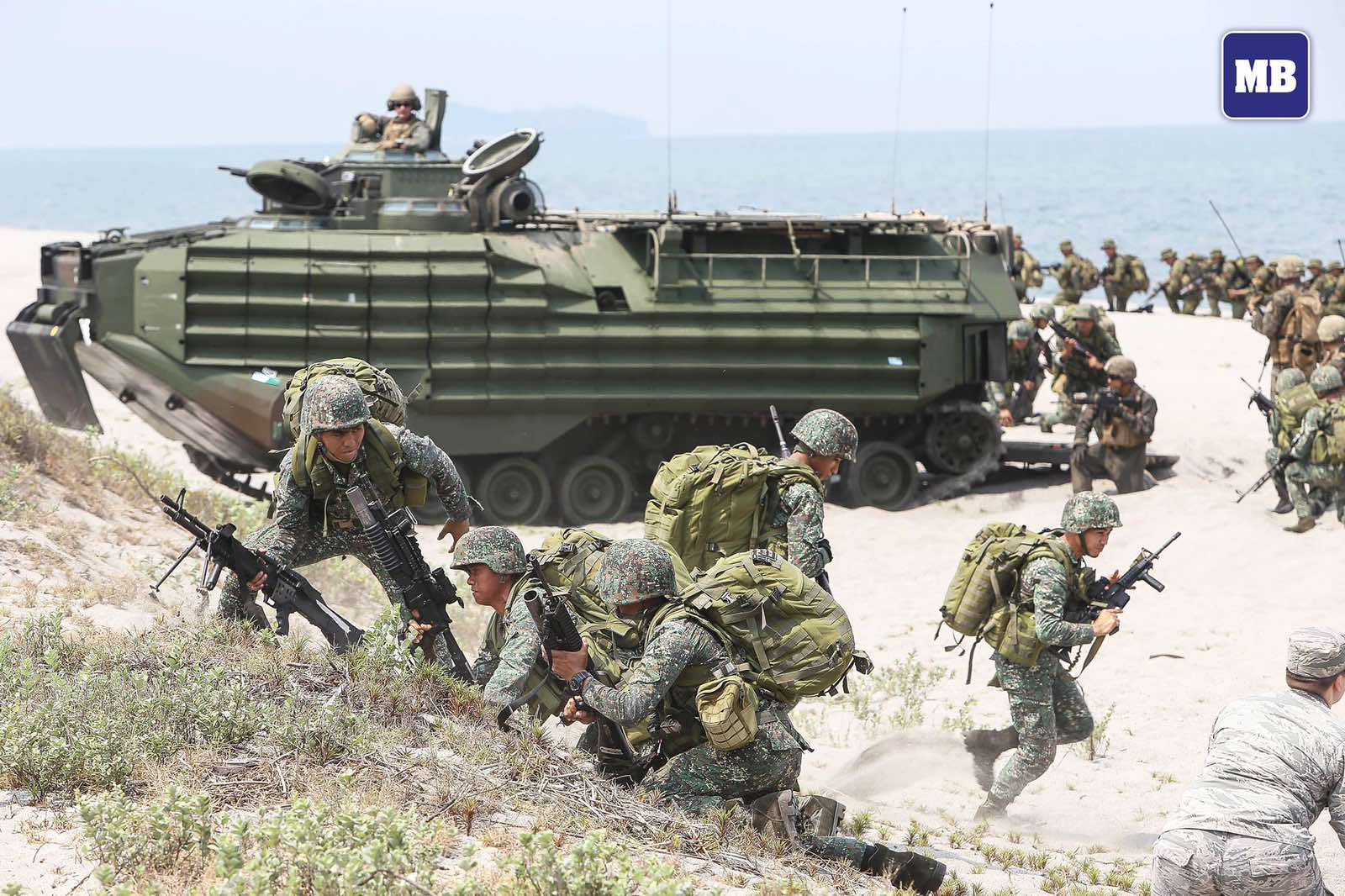Marcos considers including Japan in Balikatan drills with US
By Raymund Antonio and Raymund Antonio
President Marcos on Monday, April 15, said that Japan’s inclusion in future Balikatan Exercises, an annual military activity between the armed forces of the Philippines and the United States, is a “good move.”
 Balikatan Exercise (File photo/ MANILA BULLETIN)
Balikatan Exercise (File photo/ MANILA BULLETIN)
“Now with the inclusion of Japan into some of these exercises that we have been doing—not only Balikatan but others—I do not see any reason why Japan should not be part of those exercises in the future,” he told reporters during the Foreign Correspondents Association of the Philippines’ (FOCAP) presidential forum at the Manila Hotel.
“That again is, I think, is a good move for us to make simply because it will make it easier for us to work together and to coordinate together,” the President added.
Prodded if there are plans for Japan to join next year’s exercises, the Chief Executive replied, “we will see about that” and said that it’s “maybe something that we can study.”
“We will look again how the trilateral agreement has allowed more options to include Japan and we will see. I, for one, have no objection to such an idea,” Marcos stressed.
Traditionally, the Balikatan Exercises are between the Philippines and the United States under the Mutual Defense Treaty (MDT), but a trilateral summit that included Japan in Washington D.C. last week opened opportunities for Tokyo’s role in the annual defense exercises.
Japan, along with Australia, the Philippines, and the United States, was also part of the four-state military drills in the South China Sea before the trilateral meeting between Marcos, US President Joe Biden, and Japanese Prime Minister Fumio Kishida.
This year, the Balikatan is scheduled to run from April 22 to May 8, and will reportedly include drills along the outer edge of South China Sea waters of Manila’s exclusive economic zone (EEZ), a highly contested region that China claims in whole.
The Philippines’ and the United States’ joint military exercises come in the heels of China’s continuing aggressive stance in the South China Sea.
Marcos said that working together with Japan and the United States will help the Philippines focus “where the problems are,” as well as “maximize the resources that we have so that we can maintain the peace and stability and the freedom of navigation and adhere totally and completely and constantly to the rule of international law, specifically the UNCLOS.”